There’s something intoxicating about Holland Taylor, the actress who has become a Hollywood legend by specializing in sexy, feisty, elegant but ballsy characters on film, stage, and television. When she calls 10 minutes after you last spoke and says, “Let me ask you a hypothetical question,” she’s open to a conversational debate that can take hours — veering from politics to monogamy to the sociocultural quirks of Generation X — and you will not win.
Not just because the 69-year-old star of Two and a Half Men is still smoking hot well into middle age (which she is) but because she possesses a fiery intellect and spirited eloquence that’s rare in Hollywood. And she uses it for good, taking on passion projects (like her new one-woman show, Ann, about former Texas governor Ann Richards) and advocating for causes (a longtime supporter of AID for AIDS, Taylor was recently honored at its A Faire of the Heart event with an AIDS Celebrity Trailblazer Award).
“I just think to be honored, just for giving a you know tiny bit of time and money is just … ” Taylor pauses, a reflection she does often. There are no “ums” or “you knows” in her conversations, just thoughtful pauses before she continues. “The fact is the people who work to put on that evening, who donated their time and effort to do that, gave more than I did. So they are the ones that should be honored. All the workers in the field, all the people that as part of their regular life donate their time and effort for something — that’s who really deserves recognition and thanks."
Taylor first came to fame as Tom Hanks’s ruthless boss, Ruth Dunbar, on Bosom Buddies, the quasi-drag comedy of the early ’80s. The Philadelphia native — whom The New Yorker called “the first vaudeville Gentile we ever saw” — had left New York’s theater scene to try her luck in Hollywood. Roles in films and TV have steadily come her way sense.
“Whatever comes my way I’ve often had to do,” she says. “It’s not like I have a trust fund I’m living on. I never had any dough except what I made. And goodness, my first 10 years as an actress were extremely very much a struggle. Playing character roles in movies, which I generally did, might mean you might work only two or three weeks or something. So it’s much easier to make a living in Hollywood, but it’s no snap of the fingers still — absolutely not."
Though there’s a rich diversity in her characters (in films like The Truman Show and Legally Blonde, TV series including Men, Monk, and The Practice, for which she won an Emmy), there’s a kernel of Taylor in many of her defining roles — minus the self-indulgent bitchiness fans love about her turn as Evelyn, the matriarch on Men.
While the media hounded Men star Sheen over his bizarre behavior, Taylor stayed squarely in the actor’s corner. “I think of Charlie and [Men costars] Jon [Cryer] and Angus [T. Jones] as family, and I sort of feel very familial toward them,” she says. “And I miss Charlie very much. And the fact that Ashton [Kutcher, Sheen’s replacement] is really wonderful and inventive and a delightful person takes away nothing from the fact that Charlie was those things as well and I miss him."
Taylor plays off Kutcher so well that the writers planned one episode she says that “may knock a few people’s socks off.” It won’t take much to impress lesbians. The actress has had LGBT fans from her earliest days on TV, and in recent years turns in two lesbian-helmed projects — the indie film D.E.B.S. and Showtime’s The L Word — won her even more. Unlike many of her L Word costars, though, Taylor has never spoken about her off-screen relationships, often using gender-neutral pronouns but never really sounding as if she’s hiding anything either.
“I don’t understand the actors who do, frankly,” she says about discussing off-screen romances. “I don’t find it interesting. When I think of actors that I admire, that I’m just avidly fascinated by what they’re going to do next as performers — Meryl Streep or Annette Bening — I have never in my life seen either of them ever do an article in a magazine about themselves personally or about their private lives, and if they did, I would be (a) amazed and (b) not interested."
She says she follows that old Hollywood adage that you shouldn’t know too much personally about an actor so that you only know them from their performances. “I just find it doesn’t make any sense to me to have people talk intimately about their lives in magazine articles. They’re actors. And why would anyone talk about their life that way? It could be, you know, I’m old,” Taylor laughs.
More on next page...
\\\
(continued)
“I haven’t thought that closely about it to make a list of rules and this is OK and that isn’t,” she says, in part because for women who came of age in the pre–sex tape, pre–Internet confessional world, your sexual orientation, dating habits, and hookups were simply private matters. She finds the public’s voracious appetite for personal info “actually repugnant. But I guess, as you say, I guess it is generational."
It’s not that she doesn’t admire those with “a passion” who are open about their lives — like Chaz Bono, whom she calls “heroic” and “a remarkable person who has a very specific challenge and has been very heroic about it. And I admire that.” But, as rumors have long swirled around the actress, has anyone ever asked her point-blank whether she’s gay, straight, or bisexual?
“No, I don’t think anybody would ever do that,” she says. “And I would only say that I’m of an age where there’s not much I haven’t done in my life."
The actress did once say she always thought she’d marry when she was 60, but clearly that benchmark passed.
“I remember thinking how sure I was that I would want to, that I would want to be [married]. I’ve always been 100% monogamous in every relationship I have ever had. I am definitely a serial monogamist. I really know how much my life has changed with every relationship I’ve had, be it four years or two years or, you know, however many years it might go on. And intimacy with another person really changes you and, and enlarges you and expands you. It brings you color and understanding and a feel for things that you didn’t have before. And I remember thinking, in this most pragmatic way when I was about 40 or something — Why would I give this up?"
But every relationship, Taylor says, “seemed to have its time. I certainly thought when I was that age, I thought, certainly there will come a time when I will meet someone who is … the one to make a life with, and I have never felt that."
Taylor admits, “Life has often been quite lonely and very much a challenge because I’ve been on my own, off and on, many, many times. And, as I get older, it’s like, Wow, you’re really having to do it like this? I suppose it has been perhaps a human failing that I haven’t made that big of a commitment."
There’s still time, the actress admits, but for now she’s obsessed with another woman. “I’m actually now so involved in this extraordinary experience I’m having with this Ann Richards play that it has sort of obliterated any other considerations for the past couple of years and probably will for the next couple. It’s just so extraordinarily demanding, expanding, and demanding” she says of Ann, which debuted last year in Texas and heads to Broadway, she hopes, this spring. “Because while it’s not a political play, people … actually associate it with politics, and it’s bad enough that this presidential campaign is already so revolting that people want nothing to do with any politician — even if they’re Gandhi—so who knows if we’ll even be alive next fall or if we’ll all have just killed each other with rolling pins. Oh, my God, this is just the worst presidential campaign ever!"
The death of Ann Richards was a shock to the actress, who, though they had only met once, felt a fundamental loss. “I just adored her and she was a very important figure in my mind. And I hadn’t known how important when she died. I was so struck by it. As a creative person I wanted to do something with my feelings, which persisted for like four months or so, as if I had known her profoundly well."
Three years of research turned into a de facto museum in Taylor’s house — “my little guest room office, which is now Ann’s World; I mean, all her crap is in there.” And an abiding admiration for a woman Taylor — who was moved by her own mother’s death to study for a master’s degree in spiritual psychology in 2005 — calls “the most alive person they ever knew” got channeled into a stage play about Richards the woman, not just the politician, after interviews with Richards family, staff members, and fans. “There were people around her who had been around her her whole adult life, as friends first and then involved in her political life and her public life,” Taylor says. “And three or four of them were women to whom I can actually say I’ve become friends."
But how much of herself Taylor reveals is hard to know.
“Could you imagine George Clooney holding a press conference to come out as heterosexual?” Taylor asks. Sure, once the media pictures him with a string of beautiful women, we make the assumption that he’s straight. “Those are assumptions that are never challenged, only when it’s a [potentially] gay person."
Taylor is going back to that “generational” issue. Does she not want to discuss her personal life because she’s 69? After all, Susan Sarandon and Goldie Hawn are both about her age. “The issue is generational and it’s political. If we were in Europe, the issue would be a no-brainer. It would never be of interest.”
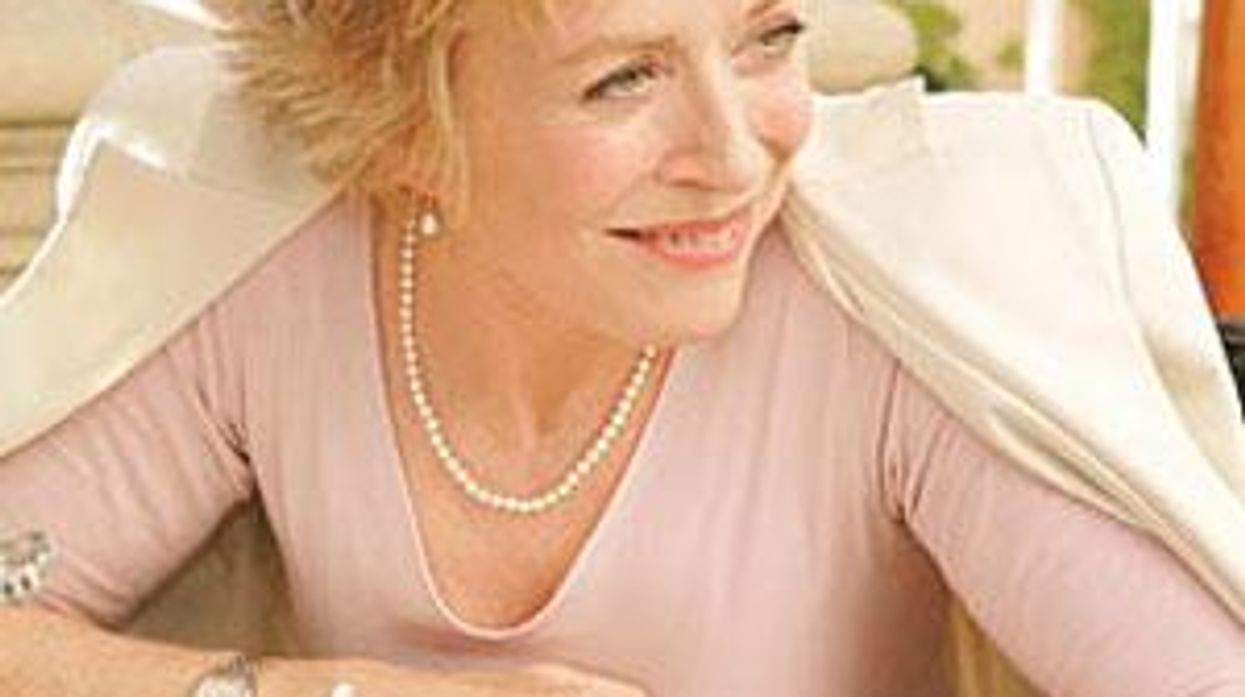

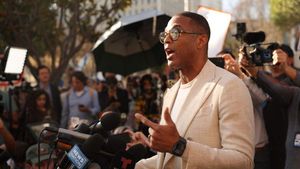

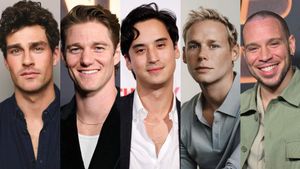

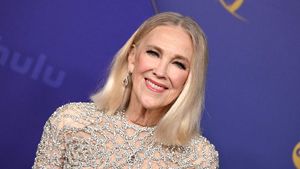






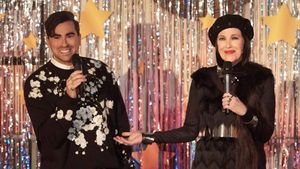
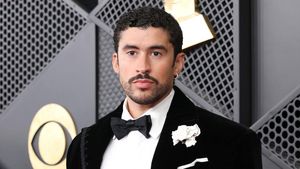

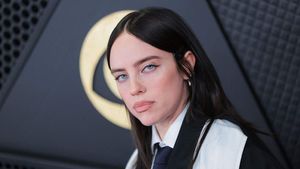
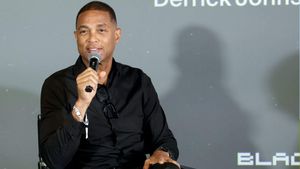




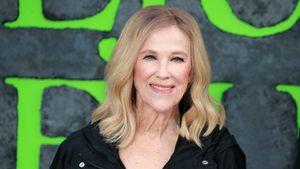





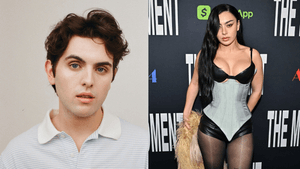

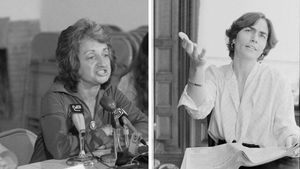
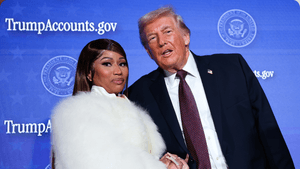
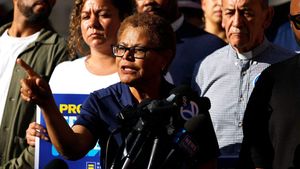
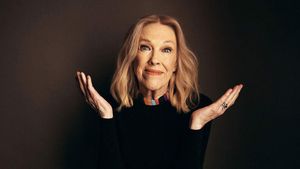



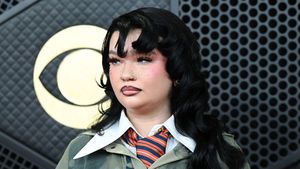

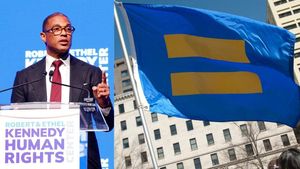
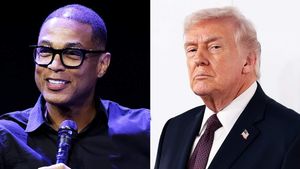


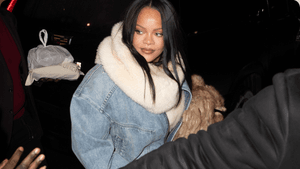


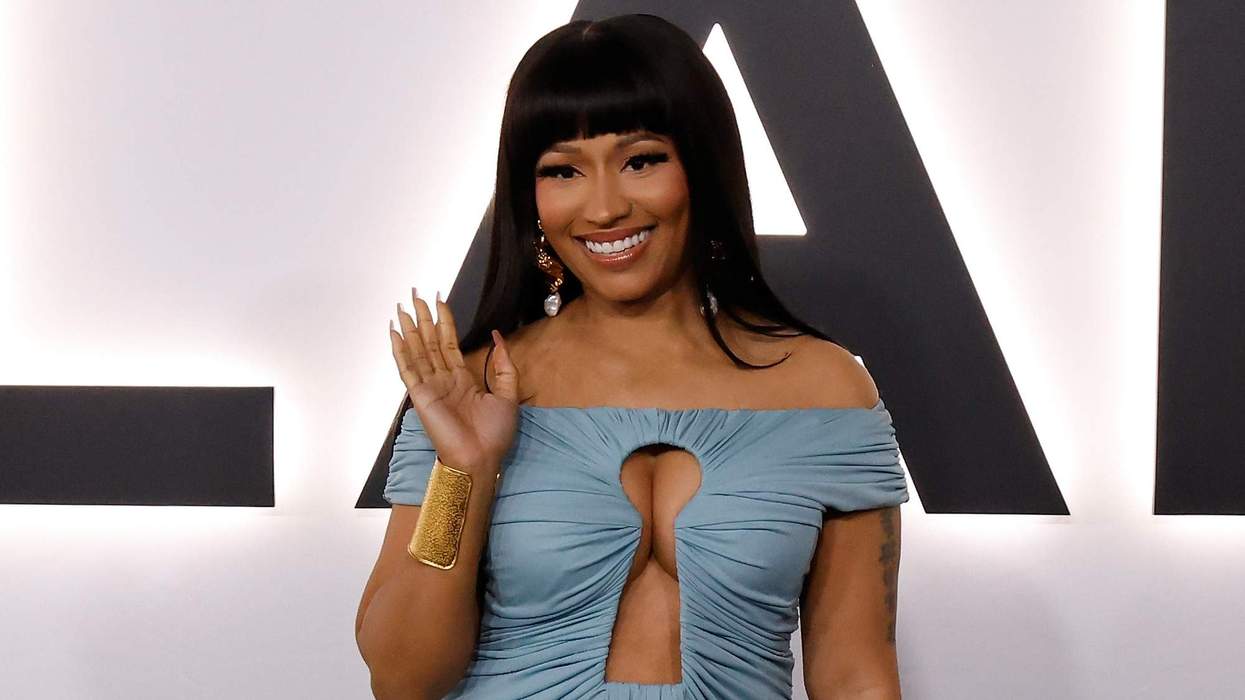
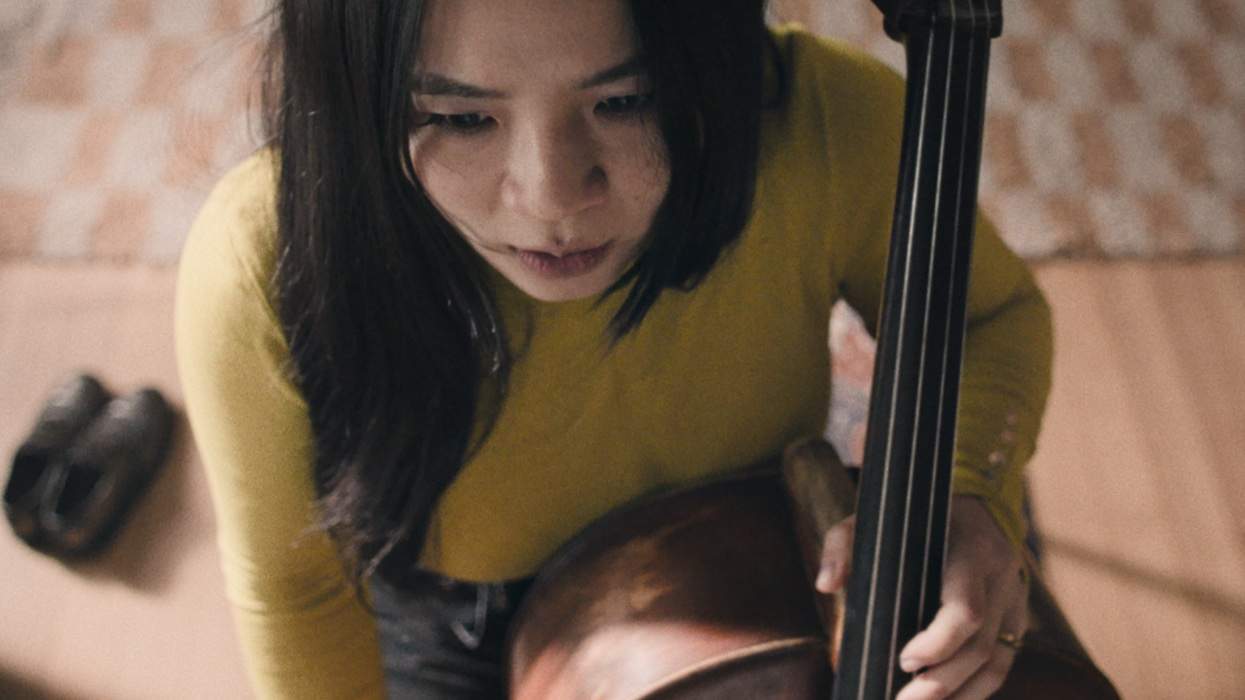
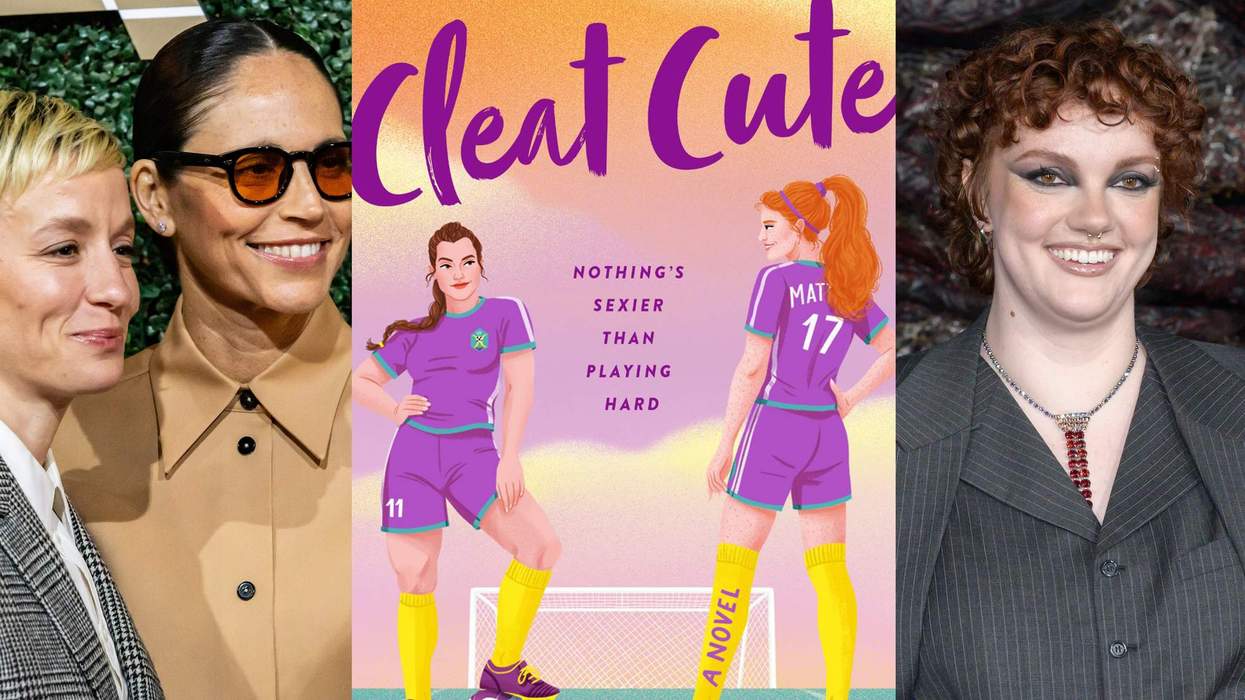
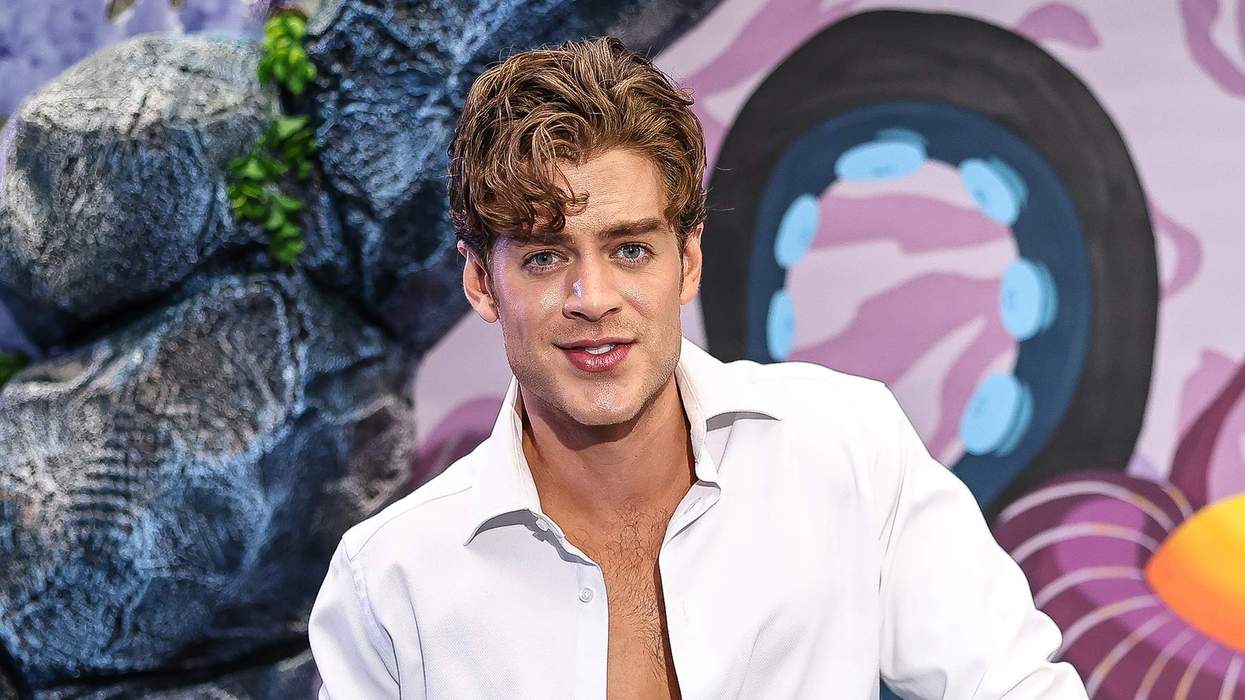

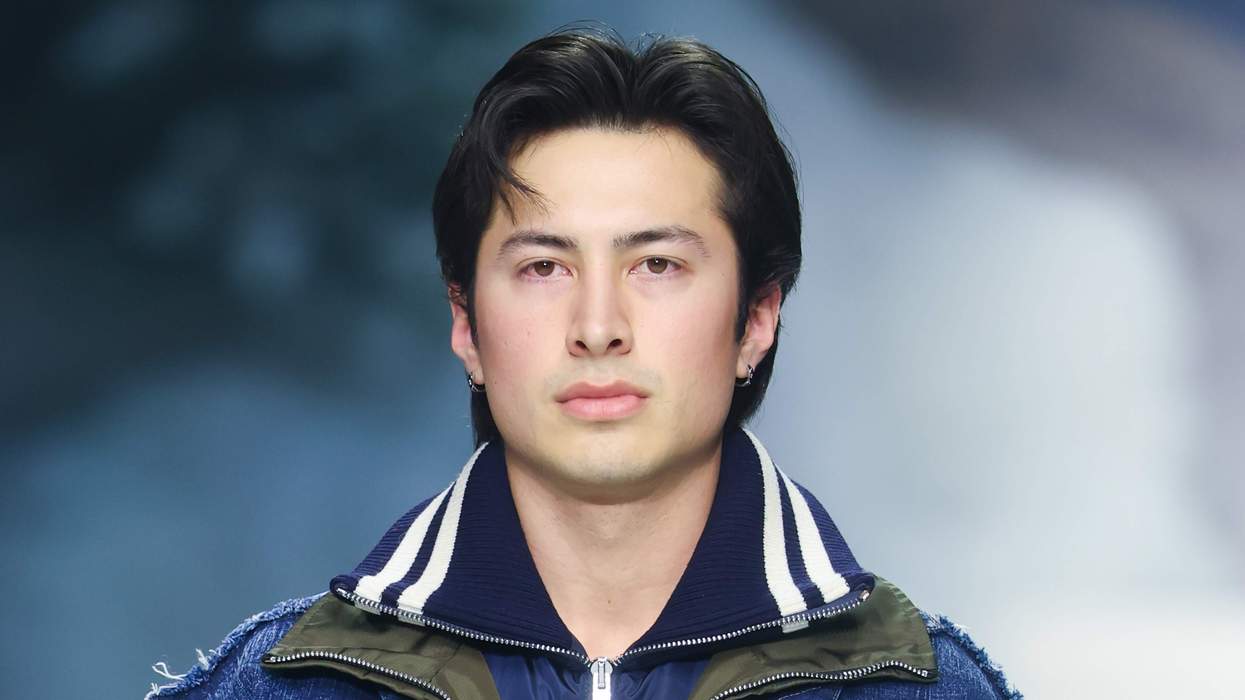



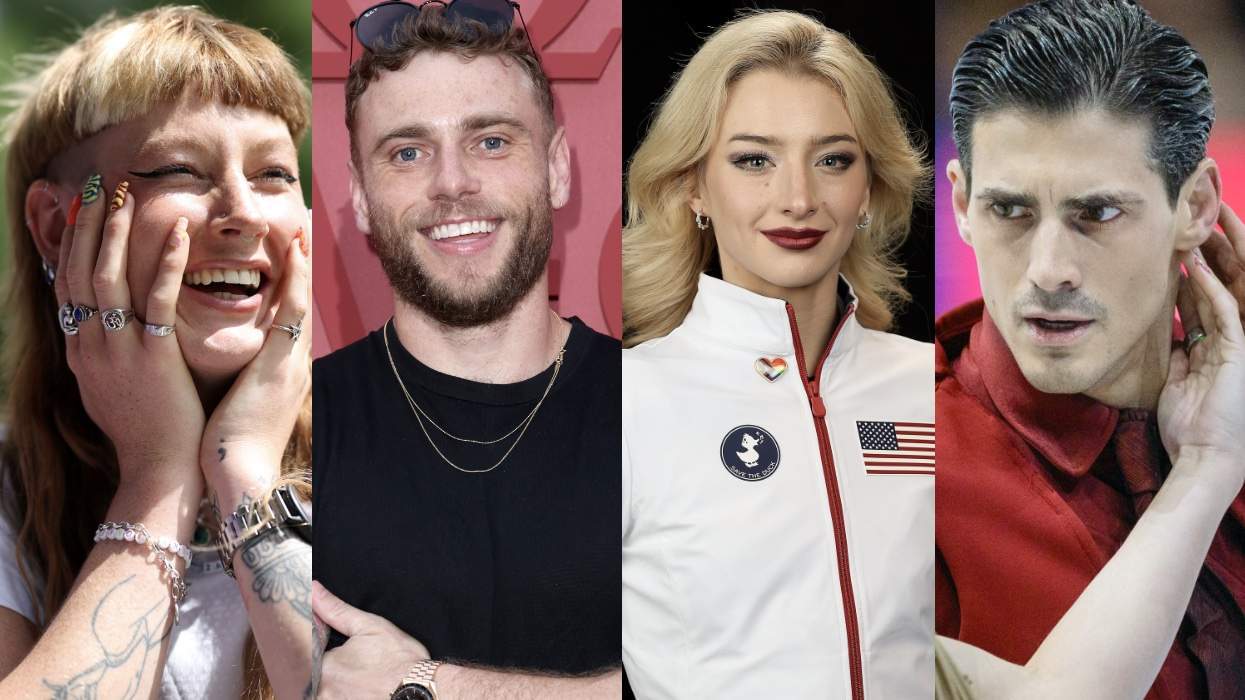































 Cindy Ord/Getty Images
Cindy Ord/Getty Images























